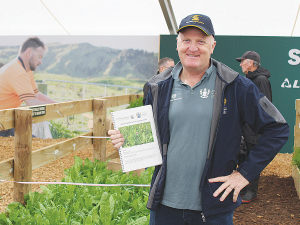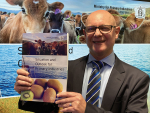A new publication has been launched that offers a comprehensive and up-to-date resource on commercially available grazing pasture species in New Zealand.
The publication, unveiled at Fieldays, has been produced to help farmers confidently select the best pasture plants based on their location, farming system, and management practices.
Resilient pastures for a changing climate is the result of a collaboration between Massey University and the Ministry for Primary Industries (MPI), separate to but in collaboration with the seven-year government-funded Whenua Haumanu program.
Whenua Haumanu programme lead and booklet principal author Professor Danny Donaghy says this publication represents a first in New Zealand.
"Not all pasture plants are created equal, but until now, there has been a lack of accessible knowledge about which plants are best suited to specific outcomes or how and when to mix species," Donaghy says.
"The Whenua Haumanu programme seeks to fill these knowledge gaps. This booklet is a result of that research and ensures that vital information reaches the farmers who need it.
"By writing this guide, we wanted to create a resource that not only brings science to the farm sector, but also invite their input so that it's truly a collaborative effort to enhance New Zealand's farming practices."
As the most comprehensive programme on regenerative and standard pastoral agriculture in New Zealand, Whenua Haumanu aims to bridge the gap between academic research and practical on-farm applications.
"The booklet is intended to be a practical tool for farmers and rural professionals to help them make informed decisions about selecting pasture species," Donaghy says.
"It also provides a clear approach for evaluating whether diverse pasture mixes can help achieve a farmer's goals.
"The booklet includes a step-by-step guide for farmers to select the right location for planting, identify most suitable plant species for regional conditions and land-use capabilities, and outlines necessary management practices for successful establishment.
"It also contains information to help highlight any potential animal health issues and how to avoid incompatible plant species to prevent poor outcomes."


















